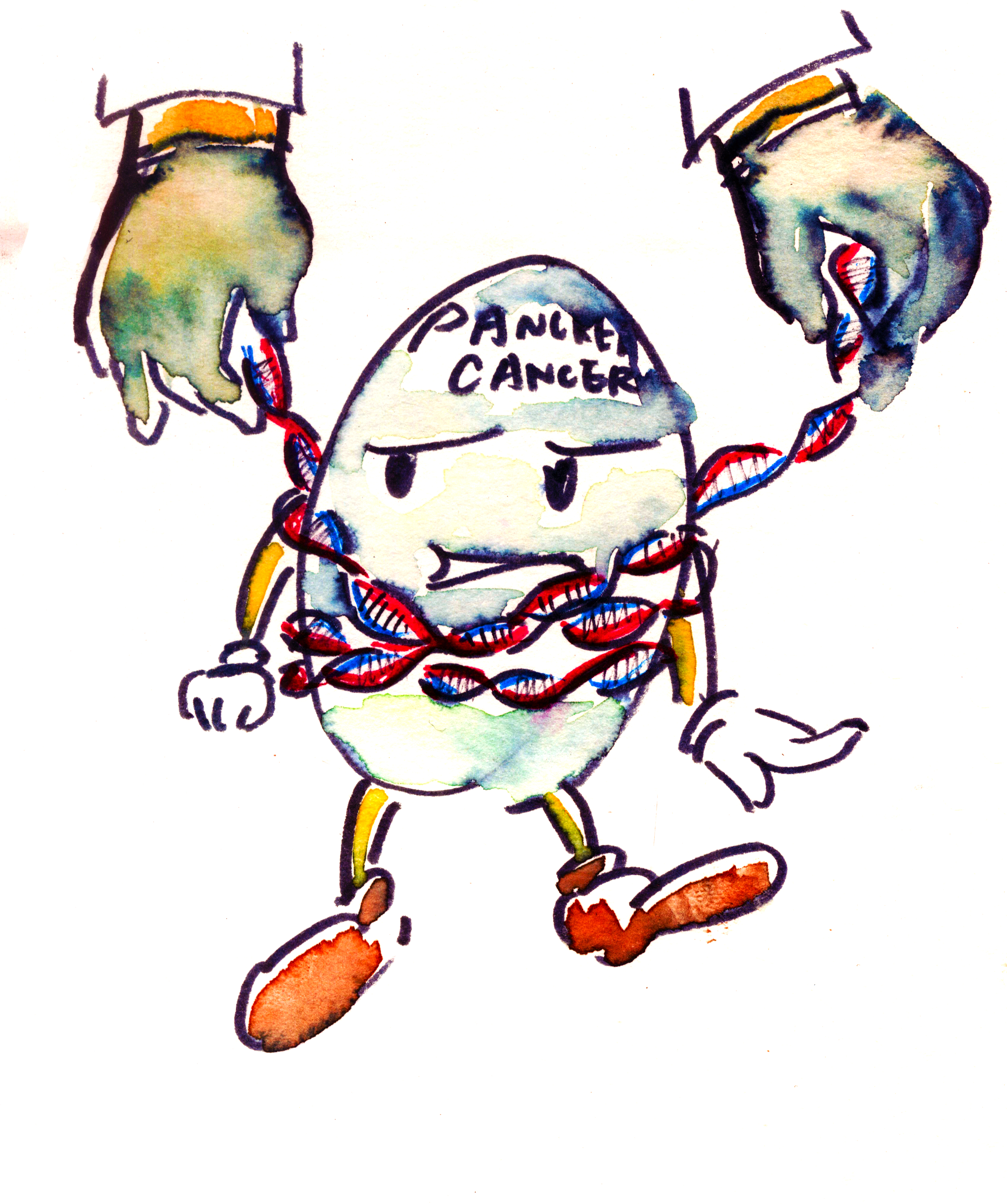
New Yale research points to potential treatments for pancreatic cancer, a disease that only 7 percent of patients survive for more than five years after diagnosis.
Building off of previous research that had identified the protein renalase as an important growth factor in the body, researchers examined pancreatic tumors to see if cancer cells overexpressed this protein. Looking at pancreatic tumors in mice, researchers confirmed that many of the tumors did overexpress renalase, and tumors with more elevated renalase expression had worse prognoses than tumors that did not overexpress renalase, according to the study. To determine whether reducing renalase expression in tumors could effectively treat pancreatic cancer in mice, researchers synthesized antibodies that bind to renalase and block its expression. The treatment killed tumor cells. Researchers said these findings point to research focused on developing a similar treatment suitable for combating pancreatic cancer in humans.
“Because renalase is a growth factor, we hypothesized that cancer cells could hijack its signaling pathway to sustain and promote cancer growth,” said Gary Desir MED ’80, study co-author and interim chair of medicine and professor at the School of Medicine. The researchers’ findings — that tumors did overexpress renalase, and that countering renalase with these monoclonal antibodies, meaning they originated from a unique parent cell, reduced tumor growth — support this hypothesis, he added.
Desir discovered the protein renalase in previous research while investigating why patients with chronic kidney disease often develop severe linked or associated -heart disease, which accounts for 50 percent of the deaths in that population. By selecting for previously unknown proteins synthesized by the kidney, researchers identified a protein that circulated in high levels in plasma of healthy individuals and that was reduced in patients with CKD, he said. This previously unknown protein was renalase, the same protein that pancreatic cancer cells overexpressed.
In pancreatic cancer patients, renalase produced by tumors “alter[s] the tumor environment in a way that hides tumor cells from our immune system and protects them from immune-mediated cell death,” Desir said.
According to the American Cancer Society, risk factors for pancreatic cancer include tobacco use, being overweight or obese, being exposed to certain pesticides, having diabetes or being older than 65 years of age. Certain inheritable genetic mutations may also play a role in promoting the onset of pancreatic cancer.
Because pancreatic cancer often does not cause any signs or symptoms until it is quite advanced, the disease is usually not detected until it has already reached late stages of growth. When symptoms do appear, they may include jaundice, loss of appetite, depression or upper abdominal pain. Pancreatic cancer accounts for 3 percent of cancers and 7 percent of cancer deaths, Desir said.
According to a January press release from the Pancreatic Cancer Action Network, this year in the United States deaths from pancreatic cancer are expected to surpass deaths from breast cancer. In the press release, Julie Fleshman, CEO and president of the Pancreatic Cancer Action Network, said the awareness movement need to be “focused on research” that could “result in new treatment options and better outcomes for patients battling this disease.” In the same release, Gloria Petersen, a professor of epidemiology in the Mayo Clinic College of Medicine, said that “it will take a dedicated research effort to bring urgently needed progress to this disease.”
Desir said the team is currently modifying the monoclonal antibodies to make them suitable for use in humans, and that the team plans to carry out studies in patients with pancreatic cancer and melanoma. They have submitted a paper describing the role of renalase in melanoma and the efficacy of anti-renalase therapy in animal models, which should be published in the near future, he added.
Almost 50,000 Americans will be diagnosed with pancreatic cancer this year, according to the American Cancer Society.







